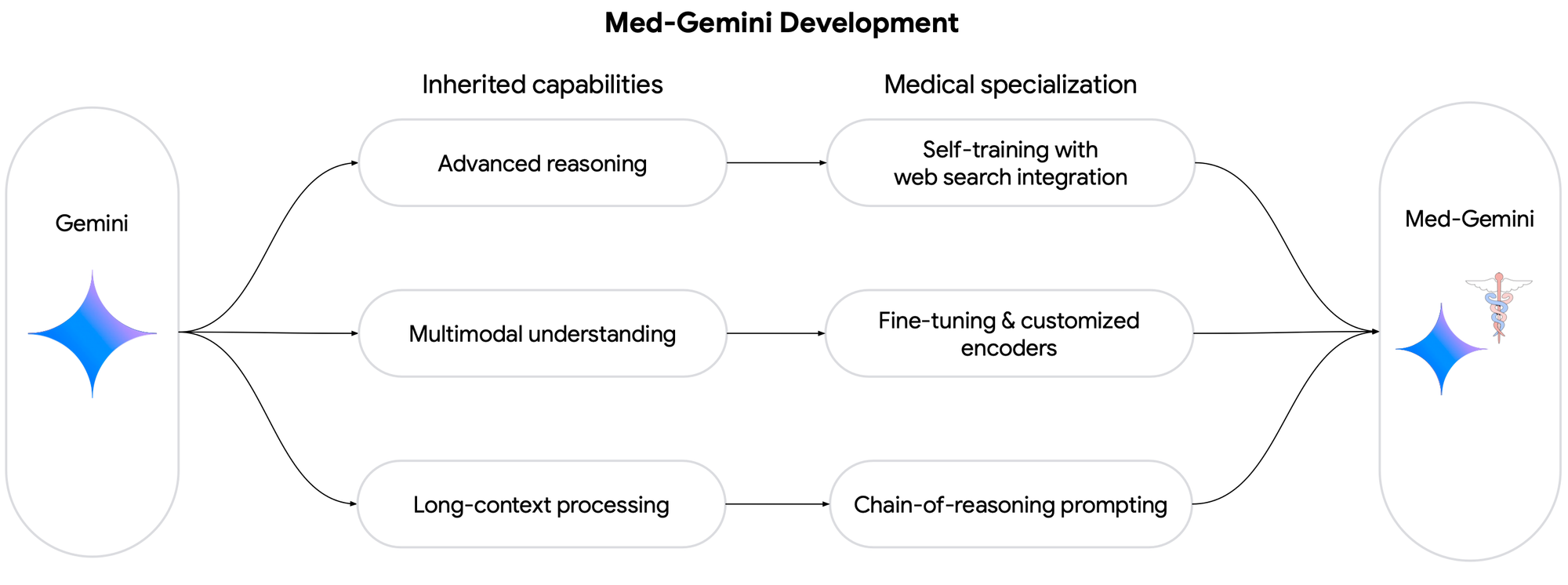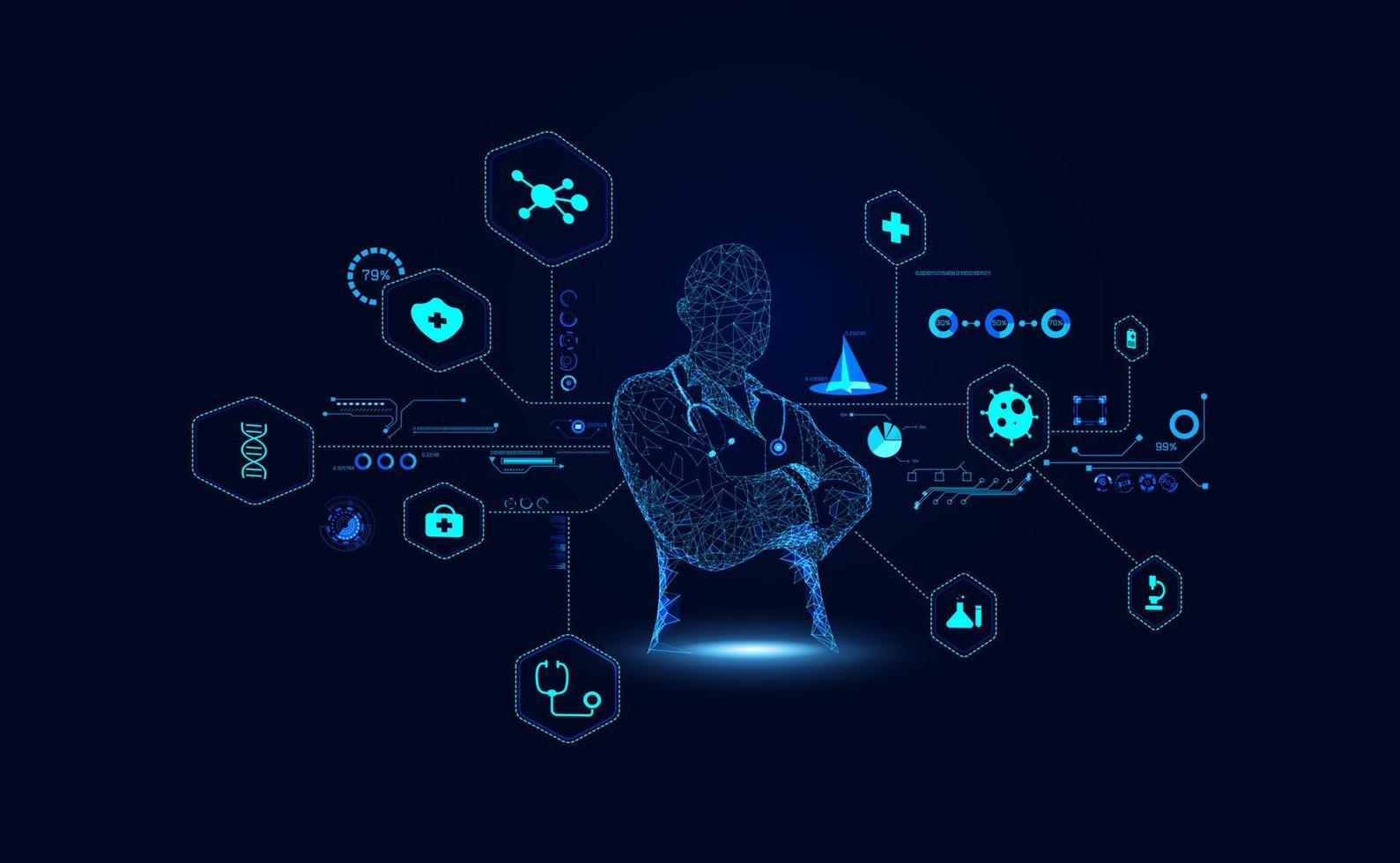The Evolution of Medical AI with Google DeepMind's Med-Gemini
The integration of artificial intelligence (AI) into healthcare is revolutionizing medical practices, from diagnosis to treatment planning and research assimilation. AI models, especially advanced ones, are enhancing healthcare standards by improving accuracy and efficiency. However, the complexity of medical data, which includes images, videos, and electronic health records (EHRs), presents a significant challenge for AI systems, requiring advanced comprehension and interpretation capabilities.
Challenges in Medical Data Analysis
Despite advancements, challenges remain in the seamless analysis of medical data by AI models. These challenges include difficulties in understanding multimodal information, synthesizing contextual records, and extracting precise medical insights from various sources. Therefore, there is a critical need for AI solutions tailored to effectively manage medical data while providing real-time support to medical professionals.

The Role of Large Language Models (LLMs)
Large language models (LLMs) face challenges in clinical settings, struggling with medical queries and processing diverse data types like medical images and videos. Their ability to synthesize information from lengthy EHRs is also limited. As a result, specialized AI tools are required to grasp the intricacies of medical data, delivering accurate and timely assistance in clinical environments.
Introducing Med-Gemini by Google DeepMind
In response to these challenges, Google Research, Google DeepMind, Google Cloud, and Verily have collaborated to develop the Med-Gemini family of models. These models, an extension of the Gemini architecture, feature specialized components tailored for medical applications. Med-Gemini aims to overcome existing limitations by enhancing clinical decision-making, multimodal comprehension, and contextual processing, setting a new standard in medical AI.
Advancements and Achievements of Med-Gemini
Building upon the Gemini architecture, Med-Gemini introduces innovative features such as uncertainty-guided web search for accurate medical query resolution. Custom encoders designed to process health-related signals, like electrocardiograms (ECGs), enhance its capabilities. The integration of chain-of-reasoning methodologies further improves its ability to interpret extensive medical records, ensuring precise responses.

Med-Gemini models have demonstrated significant progress, surpassing previous benchmarks and achieving state-of-the-art results across various tasks. These models outperform counterparts like GPT-4 and Med-PaLM 2, showcasing a 91.1% accuracy on the MedQA (USMLE) benchmark, surpassing Med-PaLM 2 by 4.6%. Notably, Med-Gemini excels in multimodal tasks, displaying enhancements in medical image and video analysis, as well as accurate information retrieval from health records.
Impact of Med-Gemini in Healthcare AI
The introduction of Med-Gemini by Google DeepMind represents a significant advancement in medical AI. With its capabilities in clinical reasoning and multimodal understanding, Med-Gemini establishes a new standard for AI models in healthcare. This innovation has the potential to transform medical diagnosis, treatment planning, and research, providing more precise and efficient support to medical professionals.
As a result, the wider adoption of AI technology in the healthcare industry is anticipated, leading to improved patient outcomes and increased operational efficiency for healthcare providers.
Sources: MarkTechPost










